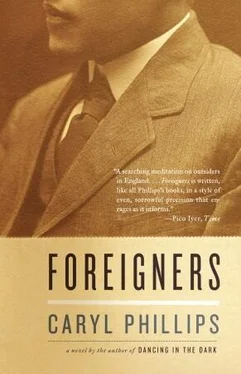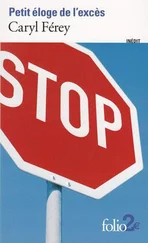We eventually drew up beside a tall, unruly, hedgerow that was clearly in need of some attention. Initially, I found it difficult to understand why my driver had stopped the carriage for I could see no sign of human life. However, taking the whip in his right hand, the ancient man pointed beyond the hedgerow to a modestly proportioned stone cottage which I now understood to be my destination. The morning sun had been kind to my bones and so I required no immediate assistance descending from the contraption, although the driver rightfully made his services available to me. 'Wait here,' I insisted, and then, gathering my wits about me, I walked gingerly towards the unprepossessing abode and knocked sharply on the door. The ominous silence was disturbed only by the pleasing sound of birds singing and a brook babbling somewhere in the distance. I knocked again, and this time shouted out loud in the hope that I might attract the attention of somebody within, but it appeared that I succeeded only in alarming my carriage driver, for the decrepit fellow left his vehicle and hastened to my side imagining that I must be crying out for help. On discovering that I was perfectly safe, and merely attempting to arouse the inhabitants of the dwelling, he rearranged himself and withdrew again to his carriage leaving me perfectly alone.
It was then that the door began to slowly open, the crying of the rusty hinges announcing the action, and a shadowy head soon emerged and stared up in my direction. A strangely coloured and clearly disconsolate child, with eyes as big as two saucers, stared up at me, but seemed reluctant to say anything. I bade the apparition a good morning and asked if its mother was hereabouts. The child, which I now determined to be female, shook its fuzzy head, which at least suggested an intelligence of the English language. I asked the girl if she imagined that her mother might show herself in the near future, but it appeared that this question stretched her comprehension a little too far, for the urchin simply stared back at me with frigid indifference and said nothing. Clearly I had arrived at the right place, for this dirty-looking child was obviously the product of a union between one of England's fair wenches and a negro, presumably Francis Barber.
However, it was evident that there was little point in trying to draw the creature into conversation for its understanding was clearly limited, and its mother had obviously absented herself for the day.
By the time I returned to Lichfield it was midday, but my curiosity was so piqued by the discovery of the child that I determined to see what more I might learn about the fate of Francis Barber from my host. It transpired that the phlegmatic innkeeper had absconded to Birmingham on an urgent matter of business, but his portly wife informed me that her husband would certainly return by the evening. I thanked her for the information, and then spent a good part of the afternoon exploring the modest city of Lichfield by foot. To my dismay, the place appeared to lack a coffee house where a man might settle into a snug and partake of some wholesome liquor while perusing the gazette or public papers and, in the convivial company of his peers, receive news and information pertaining to both business and pleasure. Lichfield lacked not only a coffee house, but the city appeared to be thoroughly devoid of that constant flow of humanity which characterises the unique vitality of any great city, and is so abundant in my own London. The great immensity of London which assaults the ears, nose, and eyes of any visitor, where wealth, commerce, and plenty dwell next to poverty, pestilence, and despair, and where fully one-tenth of the nation's population teem and tumble together, was altogether absent in this simple place. In fact, there was little in this Lichfield that I deemed to be worthy of my scrutiny. I did see one or two fine buildings, and the architecture of the twelfth-century cathedral allowed me to soothe my eyes for an hour, but this was the sum total of Lichfield's pleasures. On arriving back at the Three Crowns I discovered that my host had recently returned, and shortly before dinner he sent word to my room that he would very much like to converse with me for he had gleaned information that I might find useful. Perhaps, he suggested, we might take a drink together after the completion of my meal.
Again I dined alone, and with the same young attendant ministering to my needs, but the quality of the food appeared not to have improved. I signalled to the boy that he should remove my plate, and soon thereafter the innkeeper joined my table clutching a bottle of port and two glasses. He looked somewhat downcast, as though in possession of news that he was going to find difficult to convey. However, after some preliminary conversation about the beautiful day that we had enjoyed, he turned his attention to his own journey to Birmingham and began to sing the praises of the merchants of that town. I listened until his tongue stopped flapping, and the sheepish look on his face suggested that he was suddenly aware that he might possibly be exhausting my patience. He poured yet another drink for us both. 'I have,' he said, 'made some discoveries about your Mr Barber.' I presumed he had and so I simply waited for him to share with me the nature of these discoveries. 'The child you saw today is Frank Barber's daughter, but I know there are also other children. Apparently the wife, Elizabeth, attempts to keep their Burntwood schoolhouse by herself, although the place enjoys an enrolment of only four pupils, and it is said that it will probably close before the year is out for want of custom. Mrs Barber's skills as a teacher are not greatly in demand, but her fees are such that practically any pocket can afford her ser vices. According to the intelligence of those who were prepared to speak with me on this sad subject, those in desperate need would today rather send their children elsewhere than to Mrs Barber, so it's inevitable that soon the school will be no more.' At this he paused, as though trying to impress the gravity of the situation upon me, but I said nothing and merely took a sip of my wine. 'And then,' he continued, 'there is the case of Frank Barber himself. His final days hereabouts in Lichfield were not easy, filled as they were with both illness and poverty. Apparently Mr Barber squandered the not inconsiderable sum of money that his master left to him in his will. Furthermore, if you don't mind my saying, the fellow did let himself go, for when I last saw him he'd lost all his teeth, and his face was severely marked with the pox. He was as sad and as broken as a man can be while still remaining with us in this world.' The innkeeper paused. 'Of course, his last offence was to insist on wearing his late master's clothes, although they had clearly long past all usage. It was a truly pitiful sight.'
I listened but chose to say nothing in response to my host's words, but of course London society had long been aware of Francis Barber's descent into financial difficulties. Following his departure to Lichfield, some two years after his master's death, many had answered Francis' calls for money, for the negro claimed to have incurred significant expenses due to his own failing health and that of his delicate children, and the poor man appeared to be permanently fastened into coils of debt and anxiety. However, having squandered the generous sum that his late master had left for him in his will, and having often displayed 'vulgar insolence' in his written communication with those who had tried valiantly to help him, there were soon few in the doctor's circle who felt either sympathy or concern for the negro's welfare. Within a few years of his arrival in Lichfield, the careless Barber had also, much to the dismay of his few remaining supporters, managed to fully deplete the capital which had been set aside to provide him with an annuity. The nature of his presumably unhappy life on Stowe Street in Lichfield remained a mystery to those of us who remembered 'London Frank', and this, after all, was partly why I had chosen to seek out the negro, in order that I might discover for myself the full story of his fall from grace. 'I am led to believe,' continued my host, 'that Mrs Barber will be at home tomorrow, for apparently today she travelled from Burntwood into Lichfield on a series of errands. I'm sure that she'll be happy to speak with a gentleman such as yourself, and particularly on the matter of her late husband. No doubt she can help you with information where perhaps I have failed your good self.' I stifled my contempt, for this outburst of false modesty on the part of my foolish host was perfectly transparent. He was asking me, in an indirect manner, what exactly was my business with Mrs Barber, but that, of course, was something that I would never divulge to a man such as this. It was then that I realised that the man was most likely in drink, and although I desired his absence I reminded myself that he was my host and I should endeavour to tolerate him for a while longer. We sat together for an hour or so more, exchanging pleasantries about the seasons, and about London and Birmingham societies, before I finally tired of this man's prattle and retired to my room where I took to my incommodious bed and discovered that, once again, the innkeeper had not had the decency to at least venture to improve matters by applying a warming pan to make the devilish cot more tolerable.
Читать дальше











![Unknown - [Carly Phillips] The Bachelor (The Chandler Brothe(Bookos.org) (1)](/books/174132/unknown-carly-phillips-the-bachelor-the-chandle-thumb.webp)
